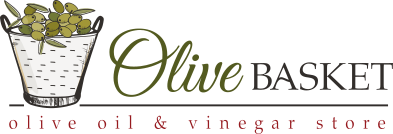Cooking With Extra Virgin Olive Oil

It is one of the biggest myths about extra virgin olive oil, and I can't believe I haven't written a post about it yet:
"You Should Never Cook With Extra Virgin Olive Oil. It Can't Take The Heat!"
False. False. False. A thousand times false! Let us explain why:
It's Healthy
First and foremost, extra virgin olive oil is packed with healthy organic compounds!
- Biophenols have antioxidant properties to help rid the body of free radicals
- Oleic acid is the most prominent monounsaturated fatty acid found in olive oil and has been proven to lower total cholesterol and LDL (bad cholesterol) levels
- Oleocanthal found in quality extra virgin olive oils is chemically similar to ibuprofen and acts as an anti-inflammatory
Most cooking oils don't have any of these properties, so already EVOO is ahead!
Heat Resistance
In addition to the heart health benefits listed above, monounsaturated fats are highly resistant to heat. This means that even when heated, oils containing monounsaturated fats do not break down as easily.
Most cooking oils (canola, vegetable, soybean, etc...) are primarily polyunsaturated fats, which not only break down and oxidize under heat, but have been shown to produce harmful compounds when they do!
Smoke Point
This is the big one. Everyone says EVOO is a poor cooking oil because it has a low smoke point.
That is not only false, but it is misleading!
Smoke point is a difficult thing to determine, but is defined as the point that an oil begins to smoke, indicating that it is breaking down and producing harmful compounds.
However, when a cooking oil begins to give off smoke, it may not be an indication that chemical bonds are breaking. This is for two reasons:
- Free Fatty Acids - EVOO has a very low FFA content by law, but it does contain some FFA. Oils with higher FFA content will appear to have lower smoke points because the fatty acids will "cook out"
- Trace Nutrients - Because EVOO cannot be legally refined and can only contain oil from the olive, it also contains all of the nutrients listed above (and more!)
Refined oils that are typically used for cooking contain very little free fatty acids and almost no trace nutrients.
EVOO on the other hand contains both, so it will appear to reach its "smoke point" long before the monounsaturated fats in the oil begin breaking down.
What all of this boils down to is that EVOO can have a smoke point between 375-400°F, plenty high enough for most cooking applications!
Takeaway
We're not going to lie and say that EVOO is impervious to heats involved in cooking. Heat will make any oil degrade, but contrary to popular belief EVOO is actually very resistant to heat compared to several other popular cooking oils.
In addition, EVOO contains nutrients that simply cannot be found in refined oils. While the application of heat to EVOO will "cook out" some of these nutrients, the fact that they are there to start with means that at least some of them will make it to your plate.
For cooking with EVOO, we recommend using an EVOO with a higher phenol count. Starting with a high phenol count means that more biophenols (and other compounds) will still be in your food at the end of the cooking process.
Bon Appetit!




